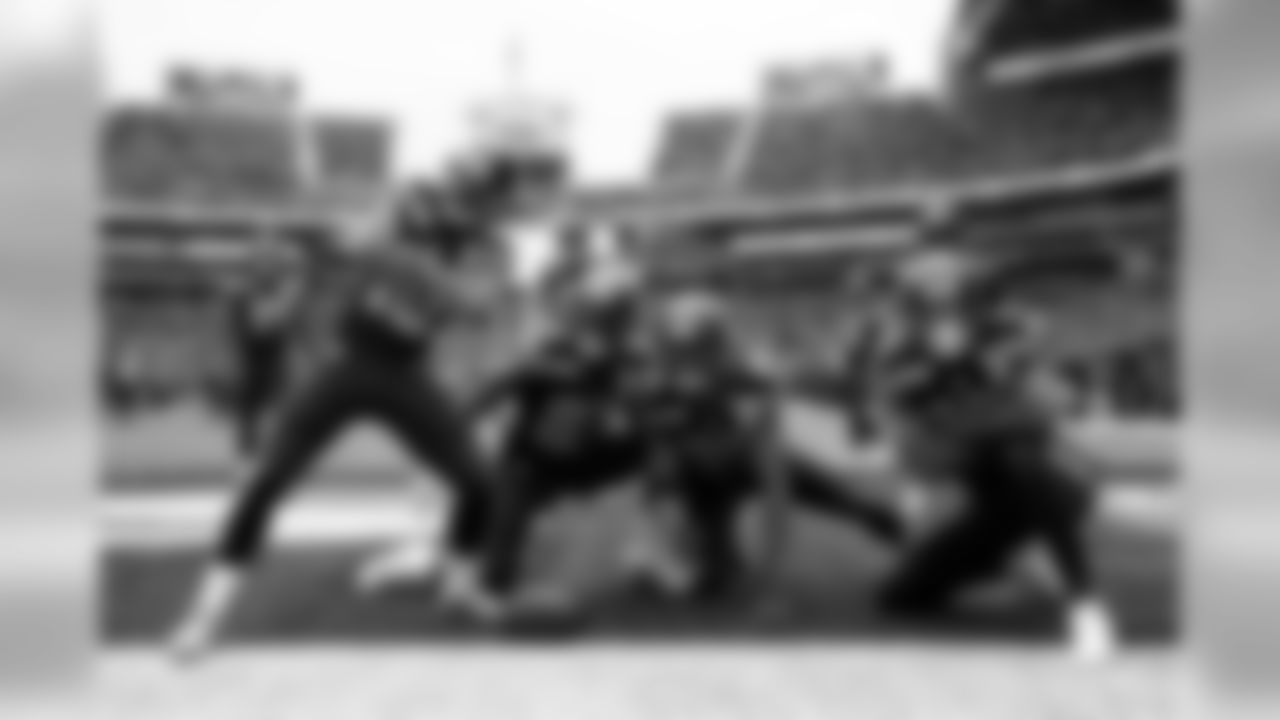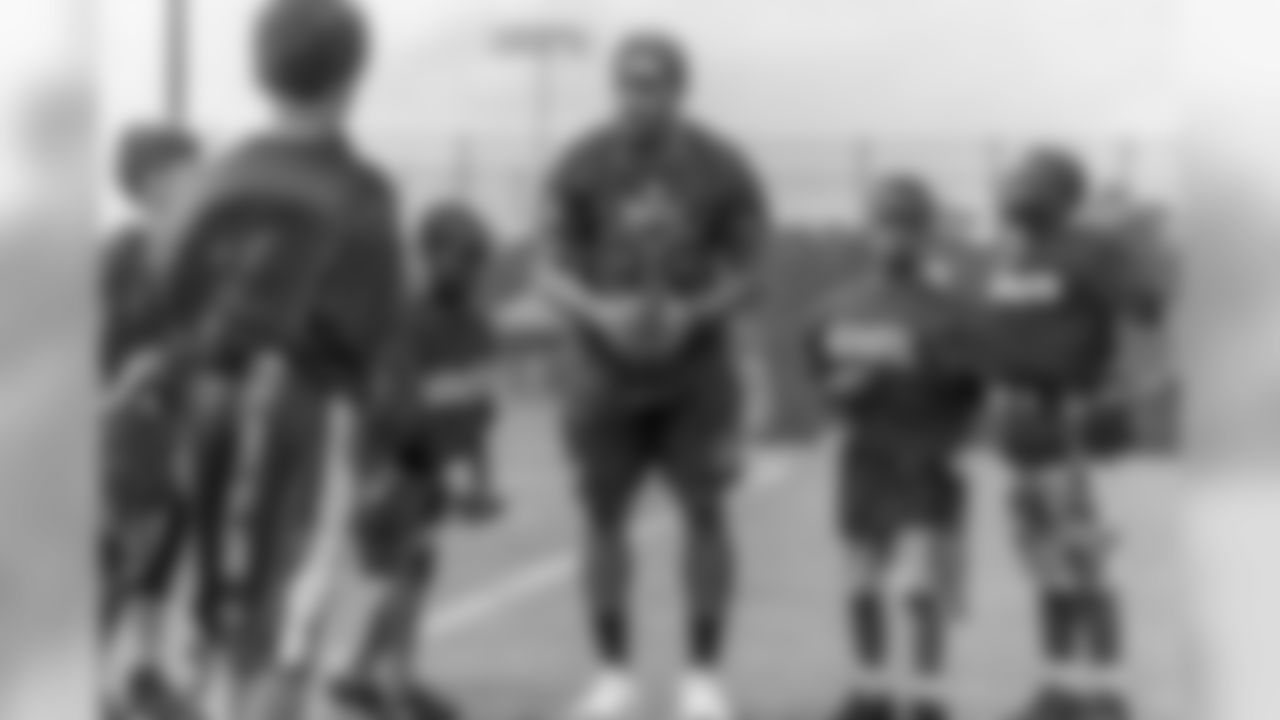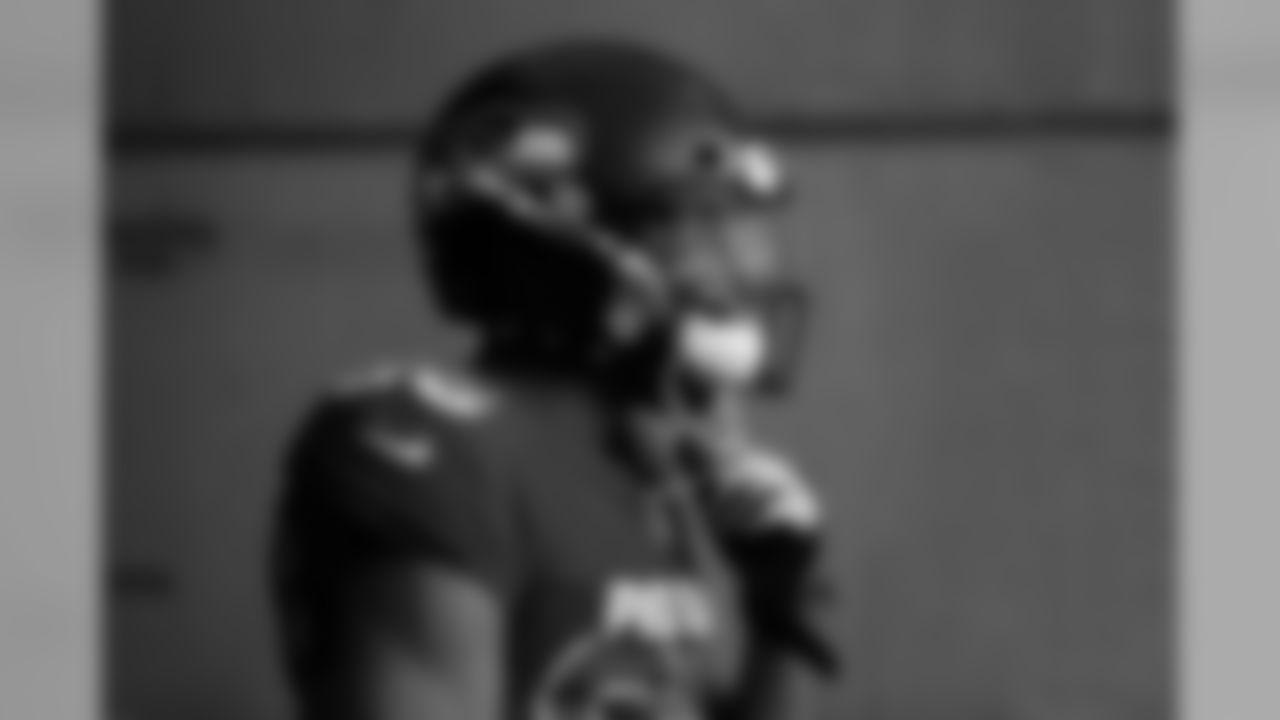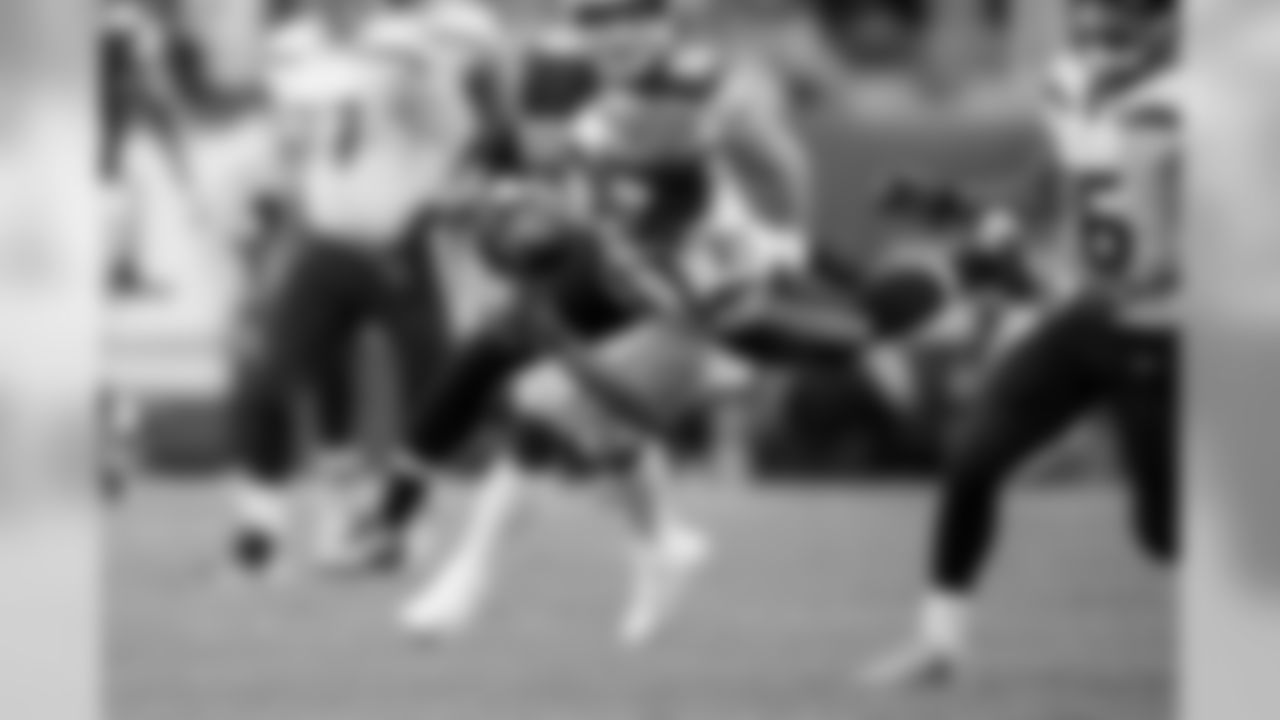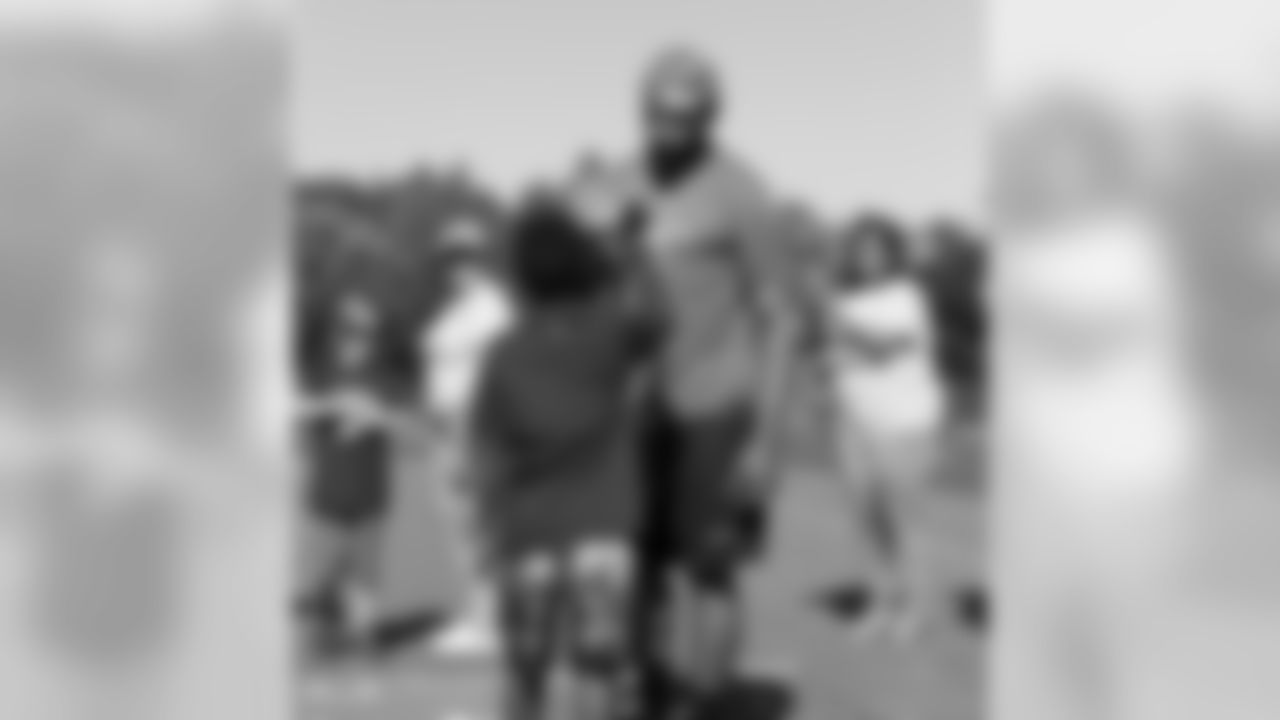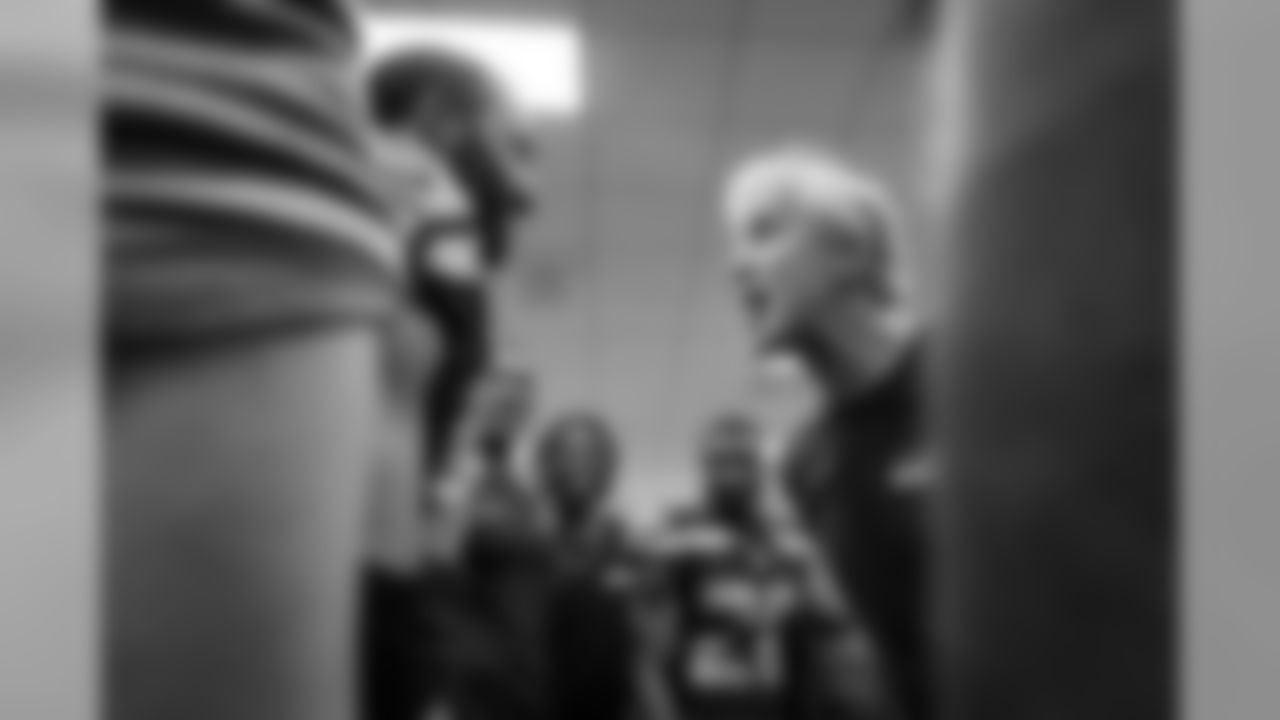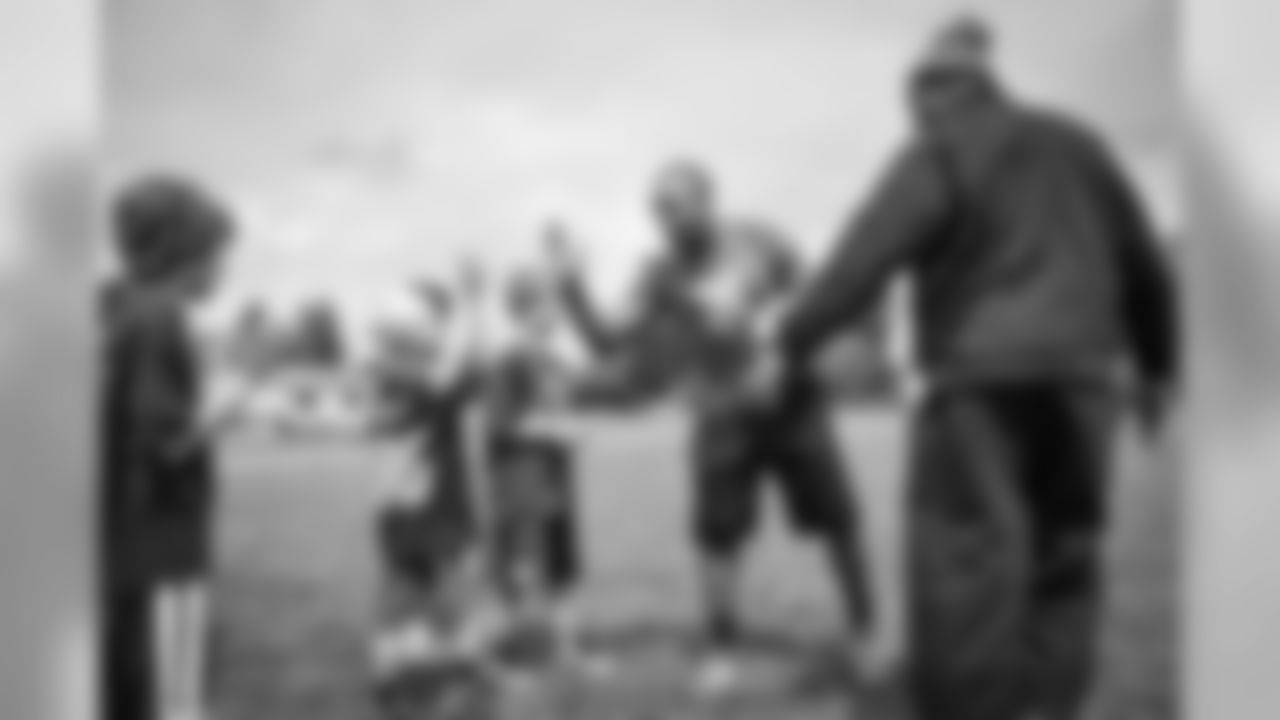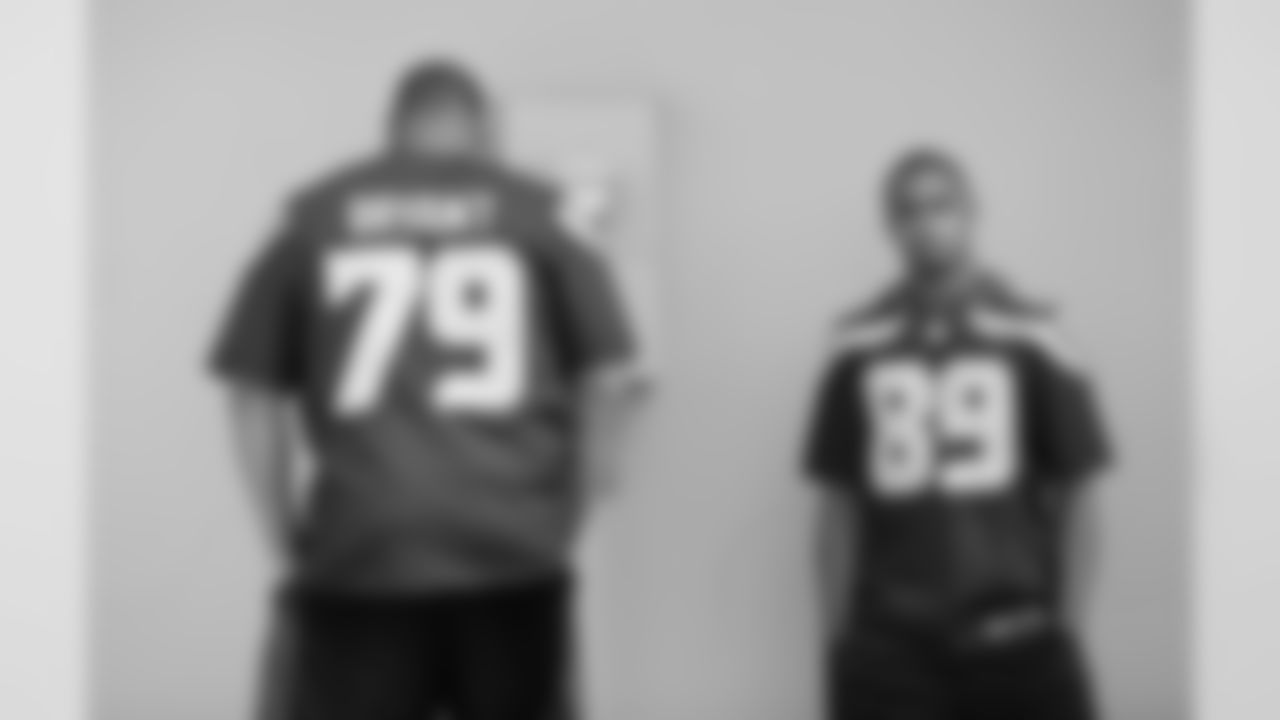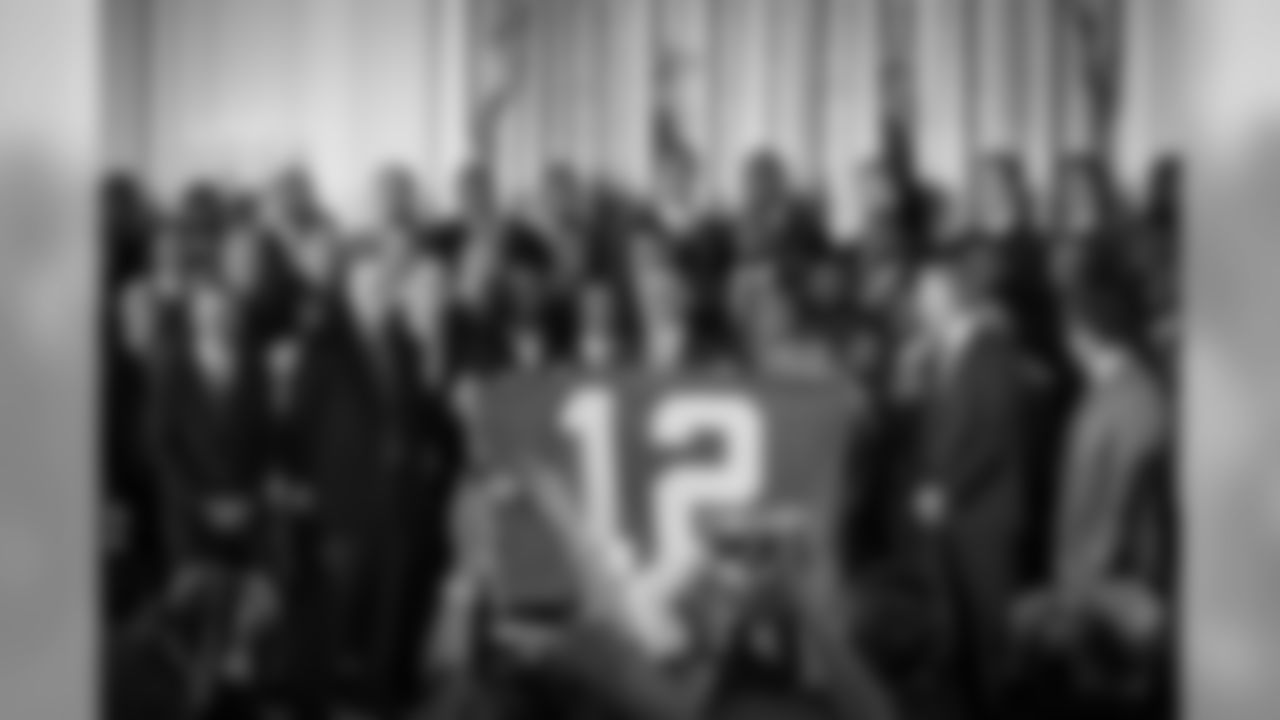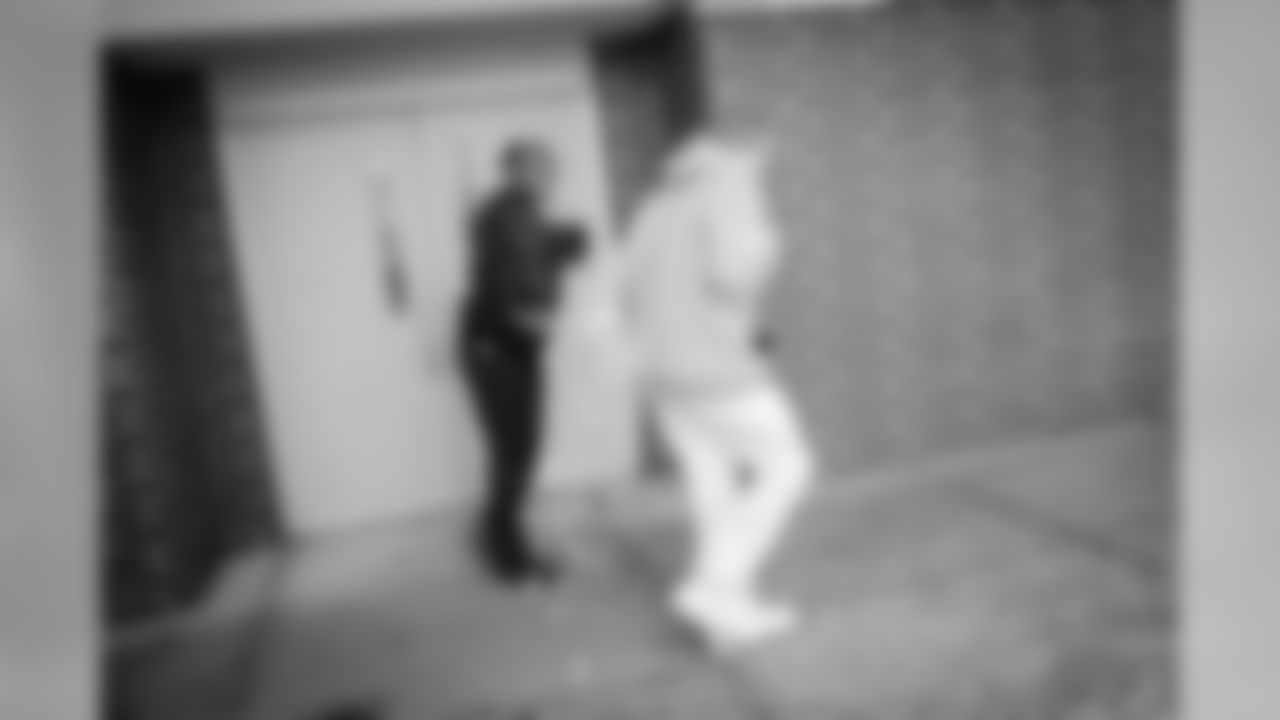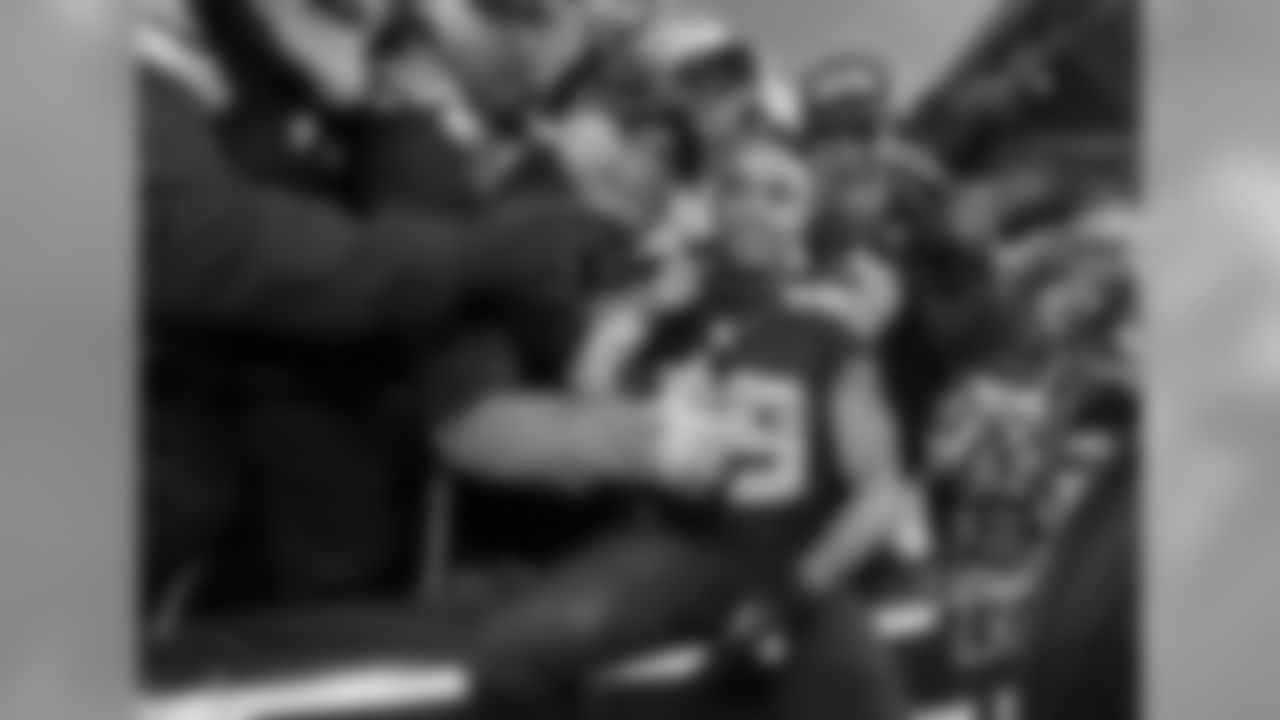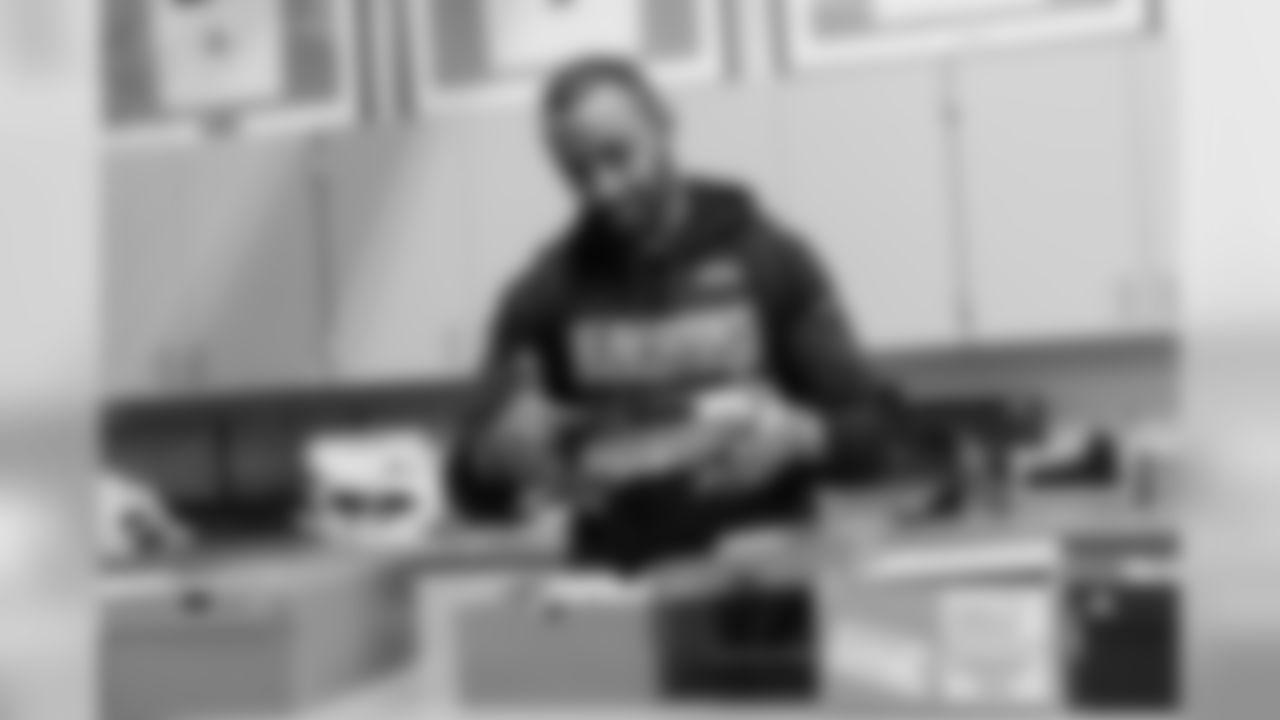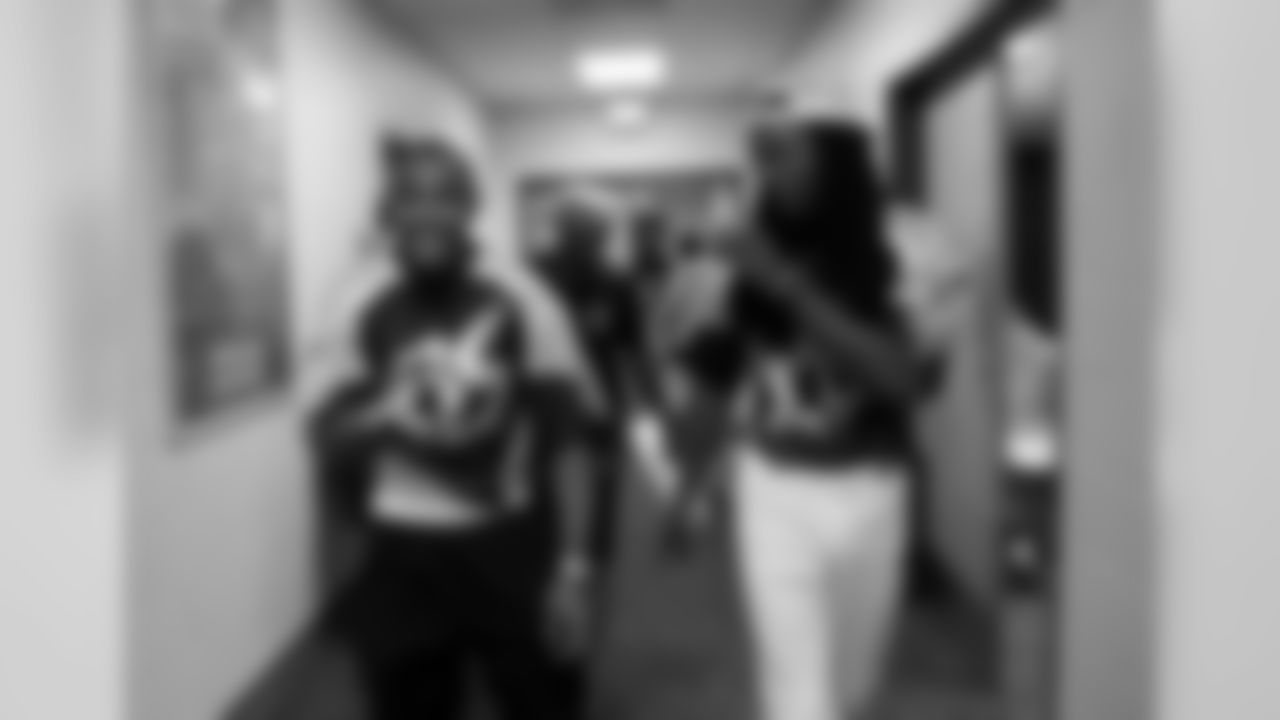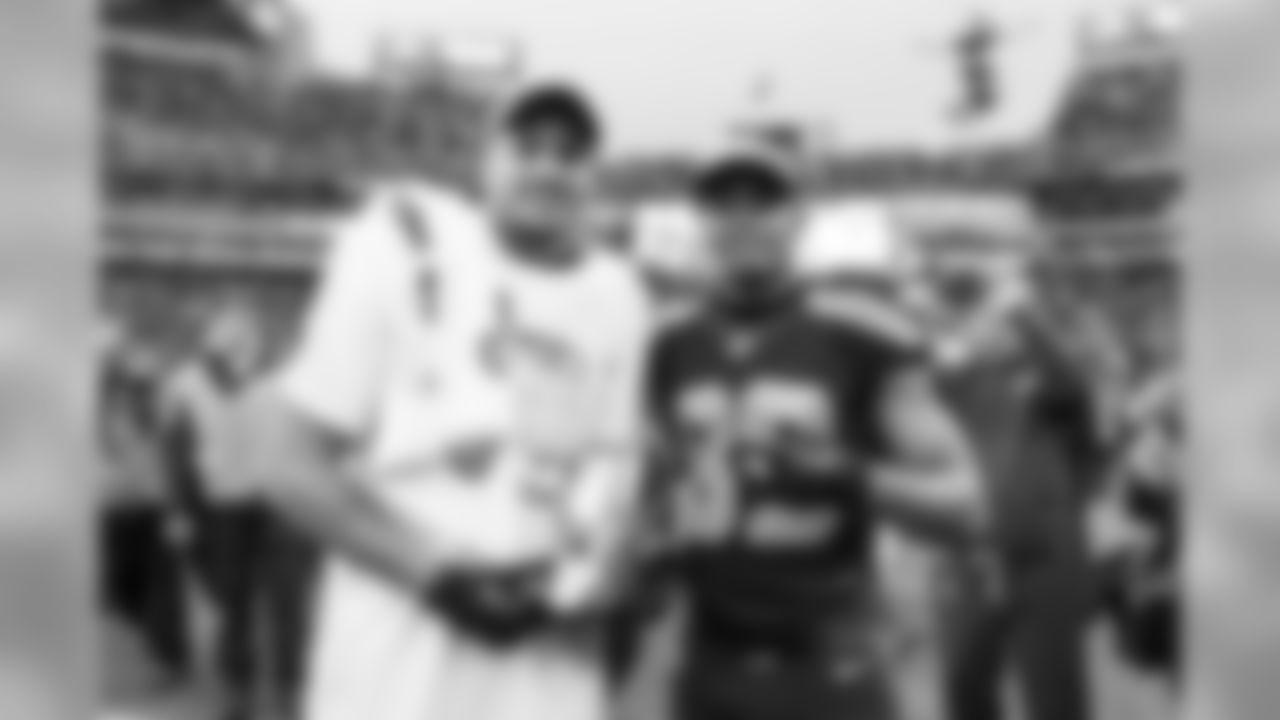"A Great Contributor In So Many Ways," Doug Baldwin Made A Difference On The Field And Off
By John Boyle
Doug Baldwin's Seahawks career came to an end on Thursday when his contract was terminated with a failed physical designation, but his impact on the team and the region will long be remembered by both Seahawks fans and by the number of people whose lives he affected with his tireless work in the community.
"He has been an extraordinary part of this program since we've been here," Seahawks coach Pete Carroll said last month after reports surfaced that Baldwin could have to retire due to injuries. "He has given us everything he has had, been a great competitor and player and all that. We believe in him so much and trust in him so much that wherever this goes, we're going to support him forever. He has been a great contributor in so many ways, not just on the team but in the community and everything else. He has been awesome."
Baldwin went from undrafted in 2011 to becoming one the best receivers in franchise history, but his on-field performance is just a small part of his Seahawks legacy. For all Baldwin accomplished on the field, his bigger contribution to the region might be all the work he did off the field, fighting for justice and equality, working to connect law enforcement agencies with the communities they serve, giving his time and money to important political causes, and working with King County and the City of Renton to build a community center.
"If you blink, you miss him."
Over the past eight seasons, Baldwin put together one of the best careers by a receiver in Seahawks history, recording the second most touchdown catches (49) in team history and the third most receiving yards (6,563) and receptions (493). One of the best route-runners in the league, Baldwin made a career out of making defensive backs look silly, and used his sure hands and precise footwork to make specular catches look routine. And time after time throughout his career, Baldwin proved to be Russell Wilson's go-to target on third down, coming through with clutch drive-extending catches.
"I don't think anybody can cover him," is how Wilson once described Baldwin. "He's so fast, he's so quick, he's explosive, he can get down the field, there's a lot of things that he can do. I think that he's a competitor; third down is about competing and finding a way to make a play, and that's usually the case. Doug is a guy that you rely on, you know that you can trust, and he's going to do it right, and he's going to get open fast and he's going to make a play."
Former Seahawks cornerback Richard Sherman, who practiced against Baldwin for more than a decade dating back to their days as Stanford teammates, said, "Literally if you blink, you miss him. If you're blinking while he's making his move, that's just your biggest mistake. If you haven't seen him before, if you haven't played against him, if you haven't lined up in front of him, he'll take you by surprise."
Combining that skill set with the chip on his shoulder that came with going undrafted, and with a hyper-competitive attitude, Baldwin became a two-time Pro-Bowler, set a franchise record with 14 receiving touchdowns in 2015, matched the franchise record for receptions in a season with 94 in 2016, and had seven seasons with 50 or more catches, a total only surpassed in Seahawks history by Steve Largent, who eclipsed that mark 10 times.
"He is a phenomenal catcher and he's tough and he can find out how to get that extra yard; he's got all that stuff going for him," Carroll once said. "He is a fantastic player… There is nobody quicker than he is. There is nobody that can shake you at the line of scrimmage and get in and out of his breaks quicker than Doug. He is as fast as you can get. That is why he is one of the best in the NFL."
Baldwin battled through numerous injuries in 2018, leading to multiple surgeries this offseason, but still played 13 games—"a heroic season" is how Carroll described it—and prior to a difficult 2018 campaign he enjoyed a prolific three-year run from 2015-2017, recording 247 catches for 3,188 yards and 29 touchdowns.
Baldwin, Wilson and the rest of the offense enjoyed a particularly prolific stretch of production in the second half of the 2015 season. From Weeks 12-16, Baldwin had 11 touchdown catches, the second most in a five-game span in NFL history, trailing only Hall of Famer Jerry Rice. He also became just the third player in NFL history to record two or more touchdown receptions in four straight games, joining Rice and fellow Hall of Famer Cris Carter. In the last nine games of that 2015 season, Baldwin had 52 catches for 766 yards and 13 touchdowns.
In addition to his impressive regular-season numbers, Baldwin also had 58 postseason receptions for 734 yards and six touchdowns, including one in Seattle's Super Bowl XLVIII win. Baldwin also played a huge role in sending the Seahawks to that Super Bowl in New Jersey, catching six passes for 106 yards and returning three kickoffs for 109 yards in Seattle's NFC championship game victory over the San Francisco 49ers.
Baldwin also took on an outspoken leadership role—remember, folks, he's passionate, not angry—one that manifested itself in everything from impassioned sideline speeches, to encouraging words to young teammates, to understanding when as a veteran he could take the heat off of teammates, such as when, two days after Seattle's Super Bowl XLIX loss, he stood in his locker for nearly 15 minutes fielding questions from reporters while many of his teammates packed their things and cleared out.
"He's going to be a legitimate factor bringing about change."
For all Baldwin did on the field, he would be the first to tell people that football was just a small part of who he is. Early in his career, Baldwin was understandably focused mostly on his on-field performance, but as he matured—he has pointed out on a few occasions that the prefrontal cortex doesn't fully develop until the mid-20s—he began to consider more his place in the world and focus more on empathy.
"If I'm being completely honest, for a long time I was too self-absorbed to really have my eyes open to things going on around me and in our society," Baldwin said last year. "I have come a long way in that regard and still have a ways to go, but I'm now able to acknowledge that I have a greater opportunity to truly impact society in some capacity and I feel compelled to do so. I feel like it's my obligation as a human being on this earth—if I'm occupying space on this earth, if I'm breathing oxygen, then I also need to be helping others who also occupy space and breath oxygen on this earth. So for me, it's a really silly 'why.' The real question is 'why not?' If we want to be a society that cares—we had so many conversations about, pick anything, healthcare, the housing crisis, children with cancer, anything—we have so many causes, things that we care about, but yet when it comes down to simple things like injecting empathy in a conversation, we have a hard time doing that. So I really challenge people to stop asking the question of, 'why would he do that, why would she do that?' and instead say, 'why wouldn't they do that?' Because again, at the end of the day, if I'm occupying this space on earth, that means somebody else is coming after me to occupy that space, so I want to make sure that I'm leaving the world a better place for my children, my grandchildren moving forward. The question is, why would I not do that?"
Baldwin said those words in regards to the work he was doing to support Initiative 940, a bill that eventually was signed into law which called for "law enforcement to receive violence de-escalation, mental-health, and first-aid training, and provide first-aid; and change standards for use of deadly force, adding a 'good faith' standard and independent investigation." But his work on getting 940 passed is far from being the only time he has used his platform to make a difference.
Baldwin has been partnering with the City of Renton and the Renton School District to build the Family First Community Center, which when it opens will not just provide a place for kids to hang out after school or to play sports, but also to provide families in the area access to health, wellness and educational services. Baldwin, who also donated $1 million towards the project, was recognized by King County last year with the Martin Luther King Medal of Distinguished Service. Baldwin was also named a finalist last year for ESPN's Muhammad Ali Humanitarian Award.
Baldwin also played a pivotal role in the creation of the Seahawks Players Equality & Justice for All Action Fund, at a time in 2017 where controversy was hovering over the league as some players protested racial injustice during the national anthem.
"I think that was really important, because for the longest time now, we've been trying to figure out, what can we do as a team to impact change?" Baldwin said after the Action Fund was launched. "And this is something that's really tangible to all of us. And again, we really wanted this to be a unified effort. We've been trying to make a unified demonstration, a unified message, and now this is a unified action we can all take. And now we're going to be able to incorporate people outside of the building."
Later that year, the Equality & Justice for All Action Fund, partnering with the Seattle Foundation, awarded grants ranging from $15,000 to $25,000 to seven non-profit organizations focused on education and leadership programs addressing equality and justice. The Action Fund also partnered with Pearl Jam last year to help fight homelessness as part of the band's Home Show performances at T-Mobile Park.
Baldwin has also long been one of several Seahawks to use his platform to address issues much bigger than football. Along with former teammates like Sherman and Michael Bennett and others, Baldwin was willing to make intelligent, passionate points on serious topics such as criminal justice reform. And he brought to those conversations unique perspective of having a father who spent more than three decades in law enforcement.
"There has to be change and progress," Baldwin said in 2016 when players began an initiative to build a bridge between law enforcement agencies and the communities they serve. "Change is inevitable, change will always happen, but you have to apply direction to change, and that's when there's progress. Right now what we're doing as a team, we have a follow through. The difference between a mob and a movement is a follow through. That's what Harry Edwards told us when he came and talked to us for three hours about the situation that's going on in our country right now. He said the difference between a mob and a movement is a follow through. So our team is united together to have a follow through. At this very moment, we're scheduling meetings with the mayor of Seattle, with police chiefs across the state, and we're discussing ways to just start discussion. That's the first step, is to have communication. We need to know the perspective of other people. The greatest tragedy for any human being is going through their entire lives believing the only perspective that matters is their own. We need to break down those walls and barriers and get people to see that there's perspectives outside of their own eyes."
In the spirit of following through with actions, Baldwin not only helped Initiative 940 get passed into law, but he also played a key role in the players creating a build a bridge task force, and over the past three seasons, Baldwin has had numerous visits with various law enforcement agencies as well as community leaders. In 2017, he co-wrote a letter to the Senate Judiciary Committee with NFL commissioner Roger Goodell supporting criminal justice reform.
"I think it's time for us to hold each other accountable, and when I say hold each other accountable I mean to the preamble of the United States Constitution, which states, and I quote, that 'In order to form a more perfect union, we must establish justice and ensure domestic tranquility,'" Baldwin said in 2016. "So as an American black male in this country, I'm suggesting, calling—I'm demanding—that all 50 state attorney generals call for a review of their policies and training policies for police and law enforcement to eliminate militaristic cultures while putting a higher emphasis on de-escalation tactics and crisis management measures.
"With that being said, I believe that the greatest power we have is in our people. And with great power comes great responsibility. And I've said this before, and as Martin Luther King famously said that, 'We must not become a culture, a society, that is more concerned with order than with justice.' And I believe that if we are more concerned with order than justice, then we'll lose both."
For eight seasons, Doug Baldwin was one of the Seahawks' best players on the field. His legacy in Seattle, however, will be much bigger than the passes he caught or the games he helped the team win.
"I couldn't be more proud what he's doing," Carroll said after Baldwin visited the state capitol in 2016 to fight for police reform. "He continues to carry the torch and build a bridge between community and law enforcement. He's doing some marvelous stuff. I've got feedback from people he's visited with a number of times now, and he continues to be really impressive and on task. I think he's going to be a legitimate factor bringing about change."
Doug Baldwin was a wide receiver and played for the Seahawks from 2011-2018. He was a two-time Pro Bowler and was a member of the Seahawks during their back-to-back Super Bowl appearances in 2013 and 2014, including winning Super Bowl XLVIII. He spent his career in Seattle. Take a look back at some of the best photos and moments from Baldwin's career with the Seattle Seahawks.









